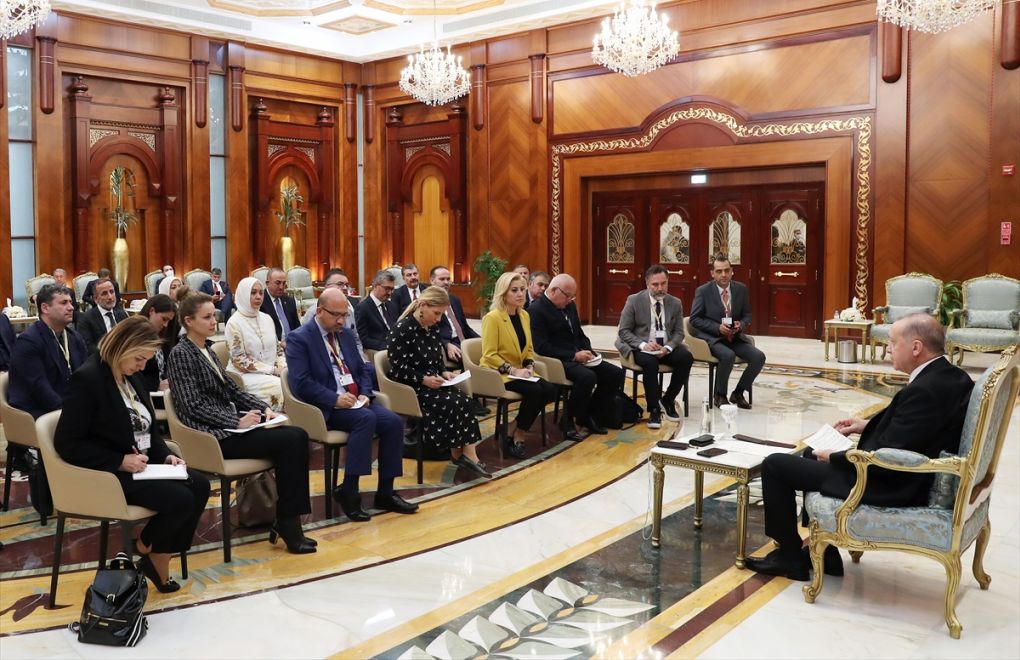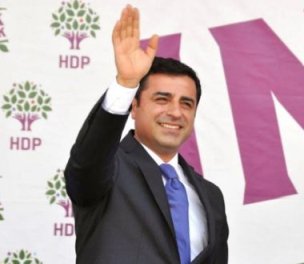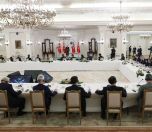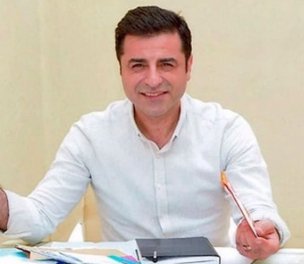* Photo: Murat Çetinmühürdar - Ankara / TCCB, AA
Click to read the article in Turkish
President and ruling Justice and Development Party (AKP) Chair Recep Tayyip Erdoğan answered the questions of reporters upon his return from Qatar earlier today (December 8).
Erdoğan also responded to questions about the recent interim resolutions of the Committee of Ministers of the Council of Europe (CoE).
Last week, following its three-day meetings, the Committee of Ministers, the body of the CoE responsible for overseeing the implementation of the European Court of Human Rights (ECtHR) rulings, issued interim resolutions over Turkey's failure to abide by the ECtHR rulings on jailed politician Selahattin Demirtaş and jailed businessperson Osman Kavala.
While the Committee of Ministers has decided to bring infringement proceedings against Turkey over the Kavala case, it has reiterated its call to release both Osman Kavala and Selahattin Demirtaş.
Answering the questions of journalists within this context, President and AKP Chair Erdoğan briefly stated the following:
"I don't have to make a comment on this. We don't recognize the European Union's decisions about Kavala, Demirtaş, this or that...
"This is so simple. We assume that 'they don't exist'. In our eyes, these are null and void. We have explained it over and over. They may understand it or not. We don't recognize the European Union decisions over the ones handed down by our judiciary. They can do what they know."
What did Erdoğan mean by the 'EU'?
NOTE: The rulings on Selahattin Demirtaş and Osman Kavala are not given by the European Union (EU) but by the Committee of Ministers, the statutory decision-making body of the Council of Europe (CoE). The European Court of Human Rights (ECtHR) is a court within the body of the CoE. As Turkey is not a member of the EU, it does not have any obligation to abide by its decisions. However, Turkey is a founding member of the CoE and it is obligated by Article 90 of its own Constitution to abide by and execute the ECtHR rulings.
Why Turkey obliged to abide by ECtHR rulings?
The ECtHR rulings are binding. Turkey is a party to the European Convention on Human Rights (ECHR). In being a party to the ECHR, it accepts the authority of the Council of Europe and the ECtHR, pledging that it will abide by the rulings and resolutions of the administration.
These rulings are also binding as per Article 90 of Turkey's Constitution. This article says that when fundamental rights and freedoms are concerned, international conventions are deemed primary.
With Article 46 of the ECHR regarding the "bindingness and execution of rulings" passed by the Grand Chamber of the ECtHR on December 22, the rulings have been definite and binding for everyone since 5 pm that day, when the article was published on the ECtHR website.
Therefore, Turkey does not have the chance to say, "I don't execute the ECtHR rulings". As Turkey is a party to the Convention, the rulings are binding and Turkey is obligated to definitely abide by them.
Infringement proceedings against Turkey
Following its three-day meetings, the Committee of Ministers of the Council of Europe decided to initiate infringement proceedings against Turkey on the grounds of its failure to implement the ruling of rights violation and immediate release given by the European Court of Human Rights (ECtHR) for jailed businessperson and rights defender Osman Kavala, who has been behind bars in Silivri Prison in İstanbul for 1,499 days as of today (December 8).
CLICK - Gezi trial | Kavala's arrest to continue
The decision to launch the infringement proceedings was voted at the meeting of the Committee of Ministers of the Council of Europe, which is responsible for overseeing the implementation of the ECtHR rulings.
While two thirds of the votes were necessary to launch the proceedings, over 32 of the 47 members of the Council of Europe, more than the necessary number, voted in favor of the decision.
Call for Selahattin Demirtaş's release
The Committee of Ministers pronounced its interim resolution following its meeting on December 2, where it discussed Turkey's failure to implement the ECtHR ruling of "immediate release" given for Selahattin Demirtaş, the former Co-Chair of the Peoples' Democratic Party (HDP).
In its resolution, the Committee "expressed the strong hope that the Constitutional Court concludes its examination of the applicant's complaints in the shortest possible time frame and in a manner compatible with the spirit and conclusions of the Court's judgment."
The Committee also "strongly urged again the authorities, in the meantime, to assure the applicant's immediate release."
Deciding to resume examination at its 1428th meeting in March 2022 at the latest, it did not accept Turkey's objection. (AS/SD)







-132.jpg)






